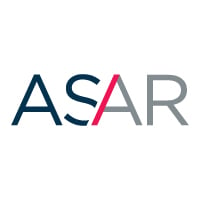

Senior legal counsel | Al Andalus Trading Establishment Company



Asmaa Soliman
Senior legal counsel | Al Andalus Trading Establishment Company
Team size: Three
Jurisdictions your role covers: Middle East, North Africa, Turkey, and Asia.
What are the major cases or transactions you have been involved in recently?
In my current role, I serve as the sole in-house legal counsel across a multi-entity business group. I provide comprehensive legal oversight for commercial, operational, and regulatory matters.
Key engagements include the negotiation of high-value cross-border distribution, supply, AC-contracting, employment, credit, insurance, and commercial agreements, tailored to varying jurisdictional requirements and business models. I have also supported the setup of a foreign entity in a free zone jurisdiction to facilitate regional warehousing and delivery services, where I developed and executed the required legal framework.
Additionally, I have managed legal aspects of infrastructure and service center operations, reviewing and negotiating consultancy and construction contracts for the group new headquarter to ensure compliance and mitigate future risks. My responsibilities extend to confidentiality and data protection, where I introduced robust internal policies and agreements to safeguard sensitive business information.
Moreover, as the single legal point of contact, I coordinate directly with external counsel for litigation matters, manage legal documentation, and advise on internal process improvements to ensure legal readiness across functions.
How do you approach managing legal aspects during periods of instability or crises, and how does your legal strategy align with the broader business strategy to ensure the organisation’s resilience?
My approach to instability is centered on risk anticipation, contract resilience, and clear stakeholder communication. In one instance involving a regulatory and compliance issue with potential contractual impact, I promptly assessed exposure, facilitated internal coordination, and ensured timely engagement with all necessary counterparties. I also led the legal response to a cybersecurity incident, ensuring our contractual obligations were met and communication remained aligned with international standards. This helped maintain business continuity, trust, and legal defensibility.
To support long-term resilience, I introduced a credit risk and due diligence policy in collaboration with finance and commercial teams, aimed at reducing exposure to non-payment and enhancing onboarding processes. This aligned legal safeguards with commercial growth and internal control priorities.
What factors influence your team’s decision to use external legal services versus handling matters in-house, and what criteria are used to evaluate their performance?
I manage the majority of legal matters internally including advisory, drafting, negotiation, and compliance to maintain agility and ensure close alignment with business goals. External legal services are selectively engaged for complex litigation or jurisdiction-specific issues.
When selecting external counsel, I value clarity, responsiveness, and commercial sensibility. Legal advisors are expected to offer actionable solutions and a collaborative working style, not just legal opinions. Evaluation is based on quality, turnaround time, risk awareness, and the ability to support the company’s operational direction.
What emerging technologies do you see as having the most significant impact on the legal profession in the near future, and how do you stay updated on these developments?
I believe artificial intelligence (AI) will have the most significant impact on the legal profession in the near future. From contract analysis and legal research to risk assessment and compliance monitoring, AI-powered tools are rapidly enhancing efficiency, improving accuracy, and allowing legal professionals to focus on more strategic tasks.
In particular, AI tools are helping legal teams manage large volumes of contracts more efficiently; from drafting and reviewing to tracking key dates and obligations. At the same time, technologies like predictive analytics and natural language processing are starting to shape how legal professionals evaluate the likelihood of disputes and identify potential regulatory risks in contracts and documents.
To stay informed, I actively follow legal technology developments through industry publications, legal webinars, and professional learning platforms. I also participate in regional legal forums and knowledge-sharing sessions to remain aware of how emerging technologies are being adopted across different jurisdictions. While AI will never replace the judgment and contextual understanding of legal professionals, I see it as a critical enabler of smarter, faster, and more business-aligned legal service delivery.